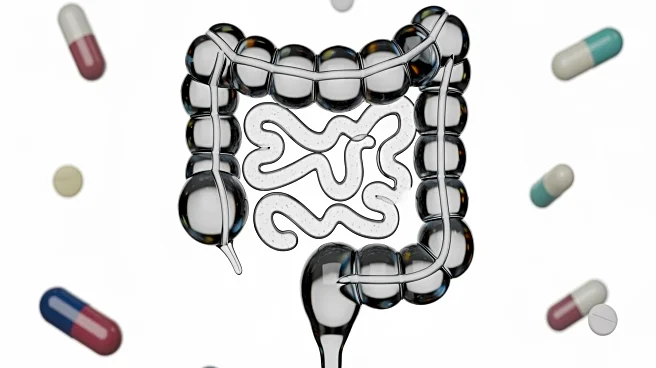What's Happening?
Researchers at Stanford University have identified more than 140 medications that disrupt the gut microbiome, potentially increasing the risk of colorectal cancer. The study found that these medications,
including antibiotics, chemotherapy drugs, antifungals, and antipsychotics, alter the balance of gut bacteria, leading to inflammation and cancer-promoting conditions. The drugs kill off weaker bacterial strains, leaving harmful, drug-resistant bacteria to thrive on available nutrients. This imbalance can lead to chronic inflammation, damaging colon cell DNA and increasing cancer risk. The findings highlight the impact of medications on gut health and the potential for long-term health consequences.
Why It's Important?
The study's findings have significant implications for public health, particularly concerning the rising rates of colorectal cancer among younger adults. Understanding how medications affect the gut microbiome can lead to better strategies for preserving gut health and preventing cancer. The research emphasizes the need for healthcare providers to consider the broader impact of medications on patients' microbiomes and to explore alternative treatments that minimize disruption. This knowledge could lead to improved guidelines for medication use and the development of probiotics or dietary interventions to support gut health.
What's Next?
The research opens the door for further studies on the relationship between medications and gut health, potentially leading to new approaches in cancer prevention. Scientists may develop predictive models to assess the impact of drugs on the microbiome, allowing for personalized treatment plans that protect gut health. Healthcare providers might begin incorporating microbiome assessments into routine care, adjusting medication regimens to minimize negative effects. Additionally, the findings could influence pharmaceutical research, encouraging the development of drugs that are less disruptive to the gut microbiome.










